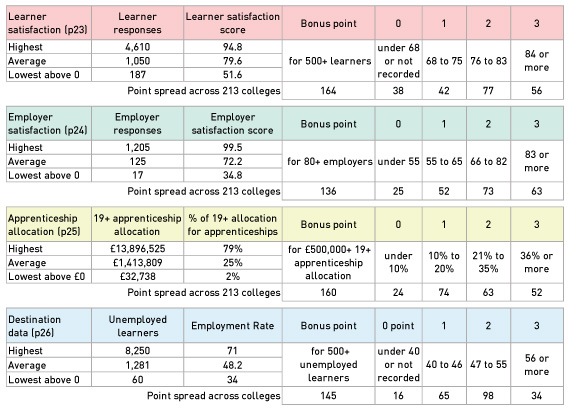A system of any extreme is unlikely to deliver the right outcomes for individuals, employers or the economy, says Gemma Gathercole
There can be little doubt that apprenticeships are the hot topic in the skills world, but recent events and reports have shown us there is still little consensus on what our apprenticeship system should ultimately look like.
Over the weekend I found myself thinking about apprenticeship policy through the lens of two letters: QP. These letters represent three essential questions for the sector right now: Question of Priority, Question of Purpose and Question of Position.
We’re risking distorting our skills system so apprenticeships are the only answer
On the question of priority, apprenticeships have never been higher, but we’re risking distorting our skills system so that apprenticeships are the only answer.
Part of the issue emerges from the general decline in employers’ investment in training, as Sajid Javid noted in the 2015 apprenticeship levy consultation by the Department for Business, Innovation and Skills.
But a secondary issue contributing to the decline is the limited availability and/or general removal of government investment in this type of learning. The conversion of grant funding to loans has caused a decline in the offer of higher level courses. In fact as recently as July this year, individuals wanting to access this type of training would have had to self-fund. It was only at the start of this funding year that courses at levels five snd six could be funded by an advanced learner loan.
On the question of purpose, there has been some discussion about what sort of apprenticeship system these reforms will deliver. But perhaps part of the confusion is the term apprenticeship itself. Do we as a nation share a common understanding of what an apprenticeship is? For some it’s still a traditional indemnity to an employer, to others it’s the worst example of the misuse of the system, and for others still, it’s indelibly linked to qualifications.
If we take it back to core principles, it’s a job with training
If we take it back to core principles, it’s a job with training. We must remember that jobs with training allow progression from beginner to competence in a particular role. But the journey shouldn’t stop there.
The system should be individual-led rather than employer-led. Potential learners and/or apprentices are the consumer for this form of training and should have the ability to select for themselves the type of training they want to undertake.
After all, if they are both invested in the system and have to pay back some of the cost they should have the same decision offered to university students: follow a course that leads to a job/career, or follow a course they are interested in, but which may not necessarily lead directly to a job.
While the person specification for my current job required a degree, it did not specify the subject. If this is a suitable outcome for the ‘academic’ track, then the ‘technical’ track should not limit a learner’s outcome either. For those keeping track – that’s the third and final QP, the question of position: how and where does it lead?
And of position, a system of any extreme – employer only, government only, awarding organisation only – is highly unlikely to deliver the right outcomes for individuals, employers and the economy. The government is right to want to put employers at the heart of the system, but to suggest that this is the first time is naïve.
Taking the theme of David Hughes’ opening speech to the AoC Conference this week, I want to focus on a positive: in order to deliver effective apprenticeships, reform and the broader technical agenda, we need a position where the expertise of all aspects of our system is respected, and we need to work together to get the best possible outcomes.
The Skills Plan will fail if it isn’t sufficiently embedded in curriculum choices before 16 and, critically, in parents’ and employers’ minds, so young people are supported to make those choices. In the end, that will make the government priority of three million starts incredibly easy to achieve as apprenticeships will be a destination of choice, rather than the thing that other people’s children do.
Gemma Gathercole is head of policy for FE and funding at OCR







